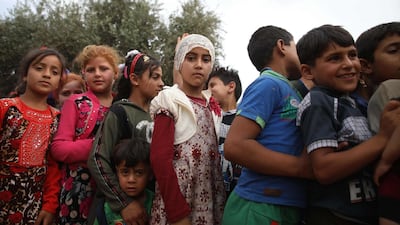Almost 10 years after the beginning of the Syrian war, which has already displaced more than 12 million people, the United Nations has warned that ongoing violence may force 2 million more to attempt to flee to Turkey. Since April, a campaign of airstrikes, carried out by regime and Russian forces on the northern province of Idlib, has displaced nearly 300,000 and killed 1,500 people. The horrors that face the 3 million men, women and children trapped in what is now the nation's last rebel-held province have been widely reported. However, the world appears indifferent. More than 400 have been shot dead by Turkish border guards while attempting to cross into Turkey since December 2018. Others who have been caught are often keen to try again. That so many are willing to risk their lives and to pay thousands of dollars to people smugglers, in the hope of completing an almost impossible journey, speaks to the depth of their desperation.
But even those who do manage to escape are not safe. Earlier this week, in the Lebanese town of Deir El Ahmar, police asked 700 Syrians to leave a campsite that has been their home for seven years, after clashes with local residents. Saleh Gharib, Lebanese Minister of State for Refugee Affairs, suggested that their return might be "the best solution". The truth is that, with much of Syria still in turmoil and the Assad regime unable to be trusted with their safety, such an outcome would be a humanitarian disaster. Meanwhile, in the northern town of Arsal, aid organisations have warned that plans to demolish concrete structures built by refugees could make 15,000 children homeless. The Lebanese government has long refused to allow Syrian refugee communities to live in anything other than makeshift encampments, for fear that more substantial dwellings would send a message of permanence.
Since the beginning of the war, Lebanon has taken in 1.5 million Syrian refugees – roughly a quarter its population. Doing so has a placed an incredible strain on its troubled economy. However, these incidents reflect a rising trend of xenophobia, at both grassroots and establishment level. Politicians such as President Michel Aoun have demanded that Syrians return to their war-torn country, even if this places their lives in danger. With World Refugee Day taking place on June 20, now is the perfect time to remind ourselves that abandoning refugees will not solve the crisis. The war in Syria is far from over and people in such wretched situations will always try to escape. If wealthier nations do not wish to take in more of those affected by conflict, there is only one appropriate response: to provide nations such as Lebanon and Turkey with the support they need to do so.

